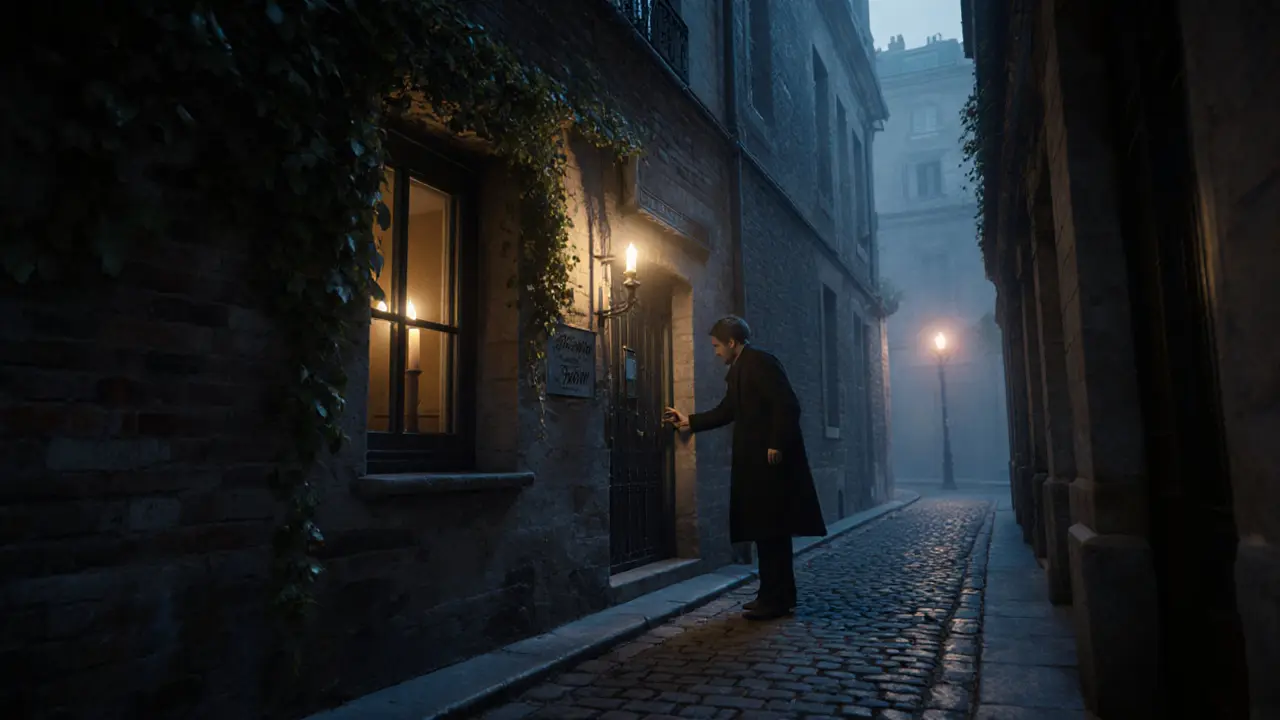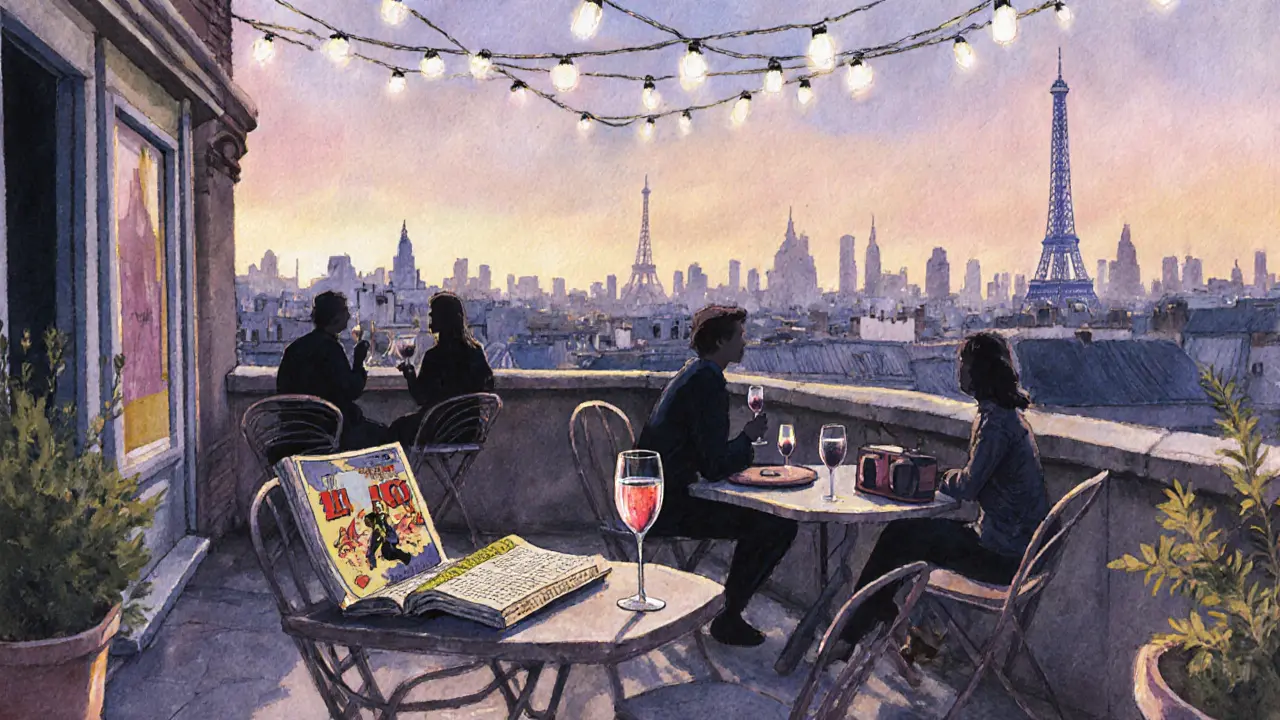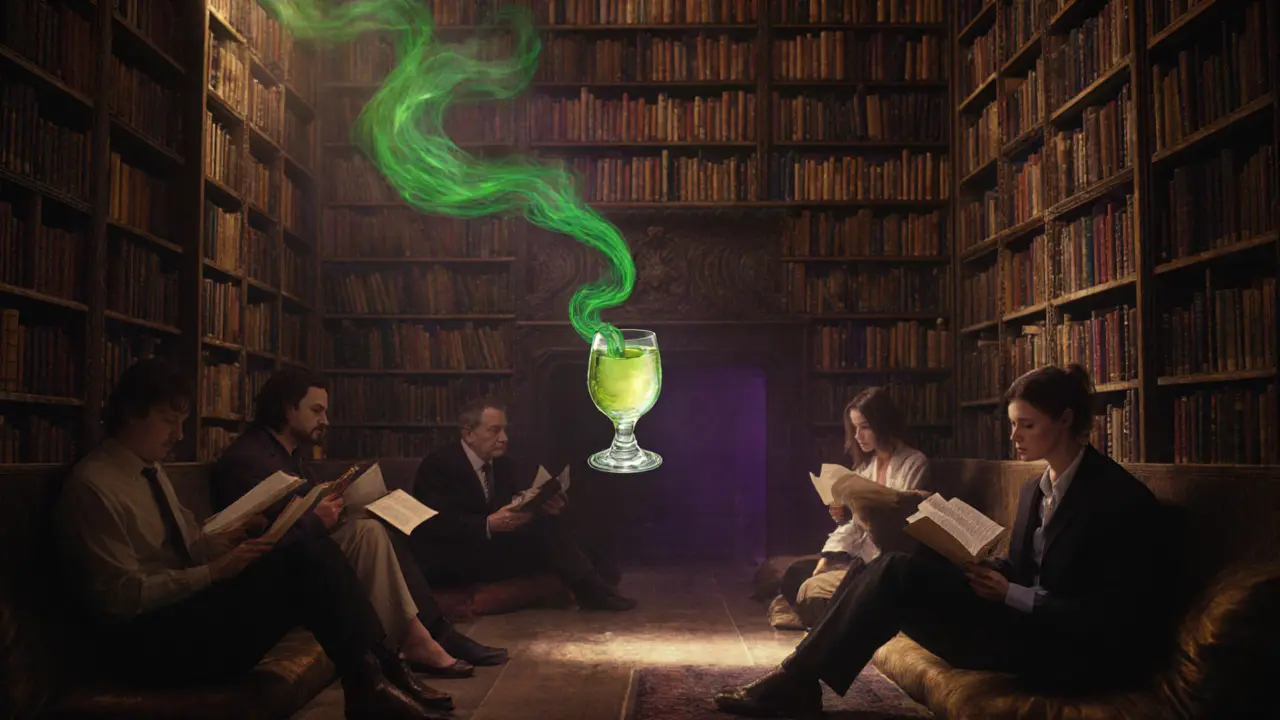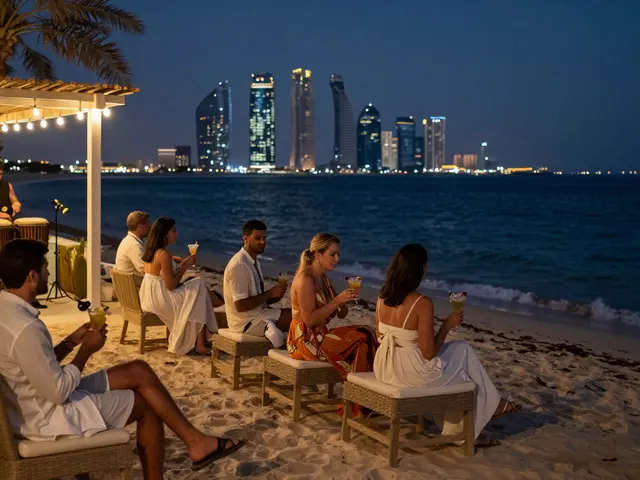
Paris isn’t just about the Eiffel Tower at sunset. By 10 p.m., when the tourists head back to their hotels, the real city wakes up. You won’t find it on Instagram ads or in the Michelin Guide. The best Paris nightlife isn’t in the crowded alleys of Montmartre or the neon-lit clubs of Pigalle. It’s tucked behind unmarked doors, down narrow courtyards, and inside apartments where the only clue is a single candle in the window.
The Door Without a Name
Start in the 11th arrondissement, near the Place de la République. Walk past the boulangerie, turn left at the graffiti-covered wall, and look for a metal door with no sign. Knock twice. Wait. A voice asks, "Qui est-ce?" Say "La lune est belle." The door opens. Inside, you’re in Le Chien qui Fume - a 20-seat jazz bar that’s been running since 1987. No menu. No website. Just a bartender who knows your name by the third drink. The music? Live saxophone, no amplifiers, no covers. Just raw, late-night soul. Locals come here after midnight to unwind, not to be seen. The wine is poured from bottles bought wholesale from Burgundy. The price? €8 a glass. The vibe? Like being let into a family secret.
The Rooftop That Doesn’t Exist
Most rooftop bars in Paris charge €25 for a cocktail and require reservations six weeks ahead. But there’s one on Rue de la Roquette, above a dry cleaner in the 13th arrondissement. You need a code. Get it from a local bookstore owner - the one who sells vintage French comics. He’ll hand you a slip with a four-digit number. Take the elevator to the fourth floor, then climb the fire escape. At the top, you’ll find a tiny terrace with mismatched chairs, string lights, and a speaker playing French house from 1999. No bouncers. No dress code. Just people sipping cheap wine, talking about movies they love, and watching the city glow below. It’s called Le Toit du 13, but no one calls it that. It’s just "the roof."
The Library That Turns Into a Club
Every Friday at 11 p.m., La Bibliothèque des Ombres in the 6th arrondissement transforms. By day, it’s a quiet reading space with 20,000 rare French novels. By night, it becomes a literary nightclub. The shelves stay. The books stay. But the lights dim. A DJ spins ambient electronica from a corner table. Patrons sit on floor cushions, reading poetry aloud while sipping absinthe from crystal glasses. No phones allowed. No photos. The only rule: bring a book you’ve loved and leave one you’re ready to let go. The owner, a retired librarian named Claudine, keeps a notebook of every book left behind. She’ll tell you which one changed someone’s life. You might be next.
The Underground Jazz Cellar
Beneath a laundromat in Belleville, you’ll find Le Cellier du Jazz. The entrance is behind a washing machine - yes, really. You pull open the door, step down three worn stone steps, and enter a 1920s-style cellar with brick walls, velvet curtains, and a single spotlight on the band. The musicians? All French. All under 30. All playing like they’ve never heard of jazz standards. They improvise for hours. No setlists. No encore. You stay until they’re done. The drinks? House-made vermouth, old-school gin tonics, and a red wine that tastes like crushed violets. The crowd? Artists, poets, and a few tourists who got lost - and never left.

The Midnight Picnic on the Seine
Every Saturday night, groups of locals gather on the quays near the Pont Alexandre III. They bring bread, cheese, charcuterie, and a bottle of Beaujolais. No fancy baskets. No picnic blankets. Just newspapers and a Bluetooth speaker playing Édith Piaf. They sit on the edge of the river, feet dangling over the water, watching the boats pass. No one speaks much. The silence is part of it. This isn’t a party. It’s a ritual. You don’t need to know anyone. Just show up with food, sit down, and wait. Someone will hand you a slice of camembert. Someone else will ask, "Tu viens souvent ici?" You say yes, even if you’ve never been. That’s how it works.
Why Tourists Miss All of This
Paris nightlife isn’t about volume. It’s about intimacy. The clubs that make headlines are designed for tourists - loud, expensive, and predictable. The real scenes? They’re quiet, cheap, and require effort. You can’t find them with a Google search. You need a local. Or you need to wander. Walk without a destination. Look for doors with no signs. Listen for music that doesn’t come from speakers. Watch for people who smile when you make eye contact. That’s your cue.
Most visitors think Paris nightlife ends at 2 a.m. But the city doesn’t sleep until 5. And if you’re lucky enough to be there when it’s quiet, when the streets are empty and the only light comes from a café window, you’ll understand why Parisians never leave.
What to Bring (And What to Leave Behind)
- Bring cash - most hidden spots don’t take cards.
- Bring a light jacket - even in summer, the Seine wind bites after midnight.
- Bring curiosity, not expectations.
- Leave your phone on silent. If you’re taking photos, you’re not really there.
- Leave your tour guidebook at home. The best spots aren’t listed.

When to Go
Don’t come on Friday or Saturday if you want to blend in. The locals avoid weekends. Go on a Tuesday or Wednesday. That’s when the real regulars show up. The bars are quieter. The music is better. The drinks are colder. And you’re more likely to be invited to join a conversation - not just photographed for a story.
What Not to Do
- Don’t ask for the "best" bar. That’s not how this works.
- Don’t try to take a selfie with the bartender. They’ll smile politely and turn away.
- Don’t show up with a group of five or more. Most places max out at eight people.
- Don’t talk loudly. Whispering is the new normal.
- Don’t expect to be served quickly. Time moves differently here.
How to Find These Places
You don’t book them. You stumble into them. Start at the Marché d’Aligre in the 12th. Talk to the cheese vendor. Ask, "Où va-t-on boire après minuit?" He’ll point you to a boulangerie with a red door. Go there. Ask the baker the same question. He’ll tell you about a man who plays violin in the metro at 1 a.m. Find him. He’ll give you the address of a hidden bar in the 10th.
It’s a chain. One person leads to another. One door opens to another. No app. No website. Just trust, time, and a willingness to get lost.
Is Paris nightlife safe at night?
Yes, if you stay aware. The hidden spots are in residential neighborhoods, not tourist zones. Avoid flashing cash or expensive phones. Stick to well-lit streets. Most locals walk home alone after midnight - and they’ve never had a problem. The real danger? Getting too distracted by the music and forgetting to check the time.
Do I need to speak French to enjoy Paris nightlife?
Not fluently, but a few phrases help. Saying "Bonjour," "Merci," and "C’est bon" goes a long way. Most hosts speak some English, but they appreciate the effort. If you don’t speak French, smile more. Nod. Listen. You’ll understand more than you think.
Are these places expensive?
No. Most hidden bars charge between €5 and €12 for a drink. A full meal at a late-night bistro runs €15. Compare that to €22 for a cocktail at a rooftop bar. The real cost isn’t money - it’s time. You need to wander. You need to wait. But the experience? Worth every minute.
Can I visit these places alone?
Absolutely. Many regulars come solo. Sitting alone at a bar in Paris isn’t lonely - it’s a signal you’re open to connection. The bartender might ask where you’re from. The person next to you might share a story. You’ll leave with a new memory, not just a drink receipt.
What’s the best time of year for Paris nightlife?
Late spring (May-June) and early fall (September-October) are ideal. The weather is mild, the streets are alive, and the crowds are thinner. Winter can be magical too - snow on the Seine, warm wine, and candlelit corners. Summer? Too many tourists. Skip July and August if you want the real scene.
Next Steps
If you’re planning your trip, don’t book a nightlife tour. Don’t download a Paris nightlife app. Instead, pack a notebook. Write down the names of people you meet. Ask them where they go after work. Follow their advice. You might end up in a basement with a pianist playing Debussy at 3 a.m. Or on a rooftop watching the sunrise over Montparnasse. That’s not tourism. That’s Paris.

